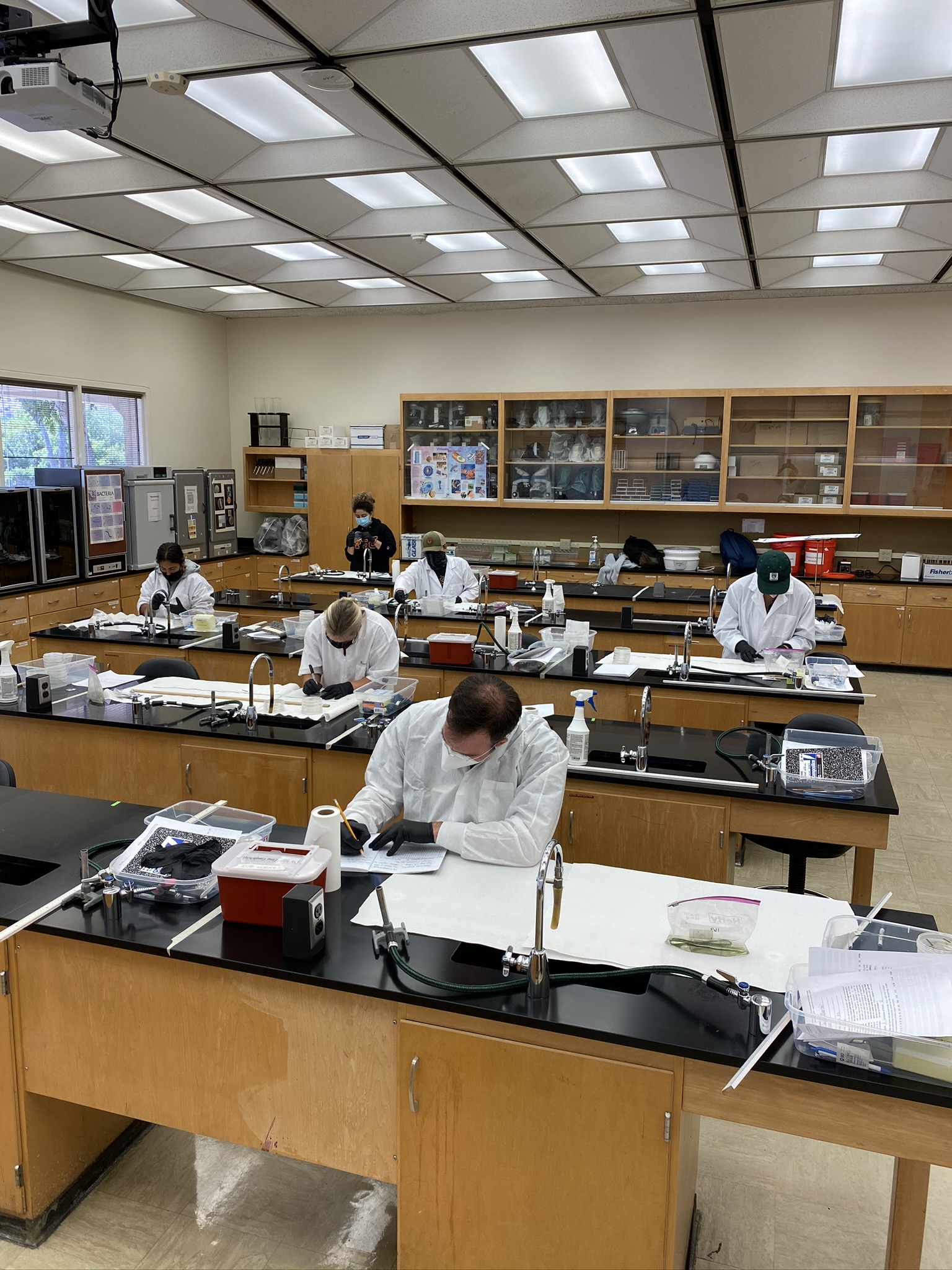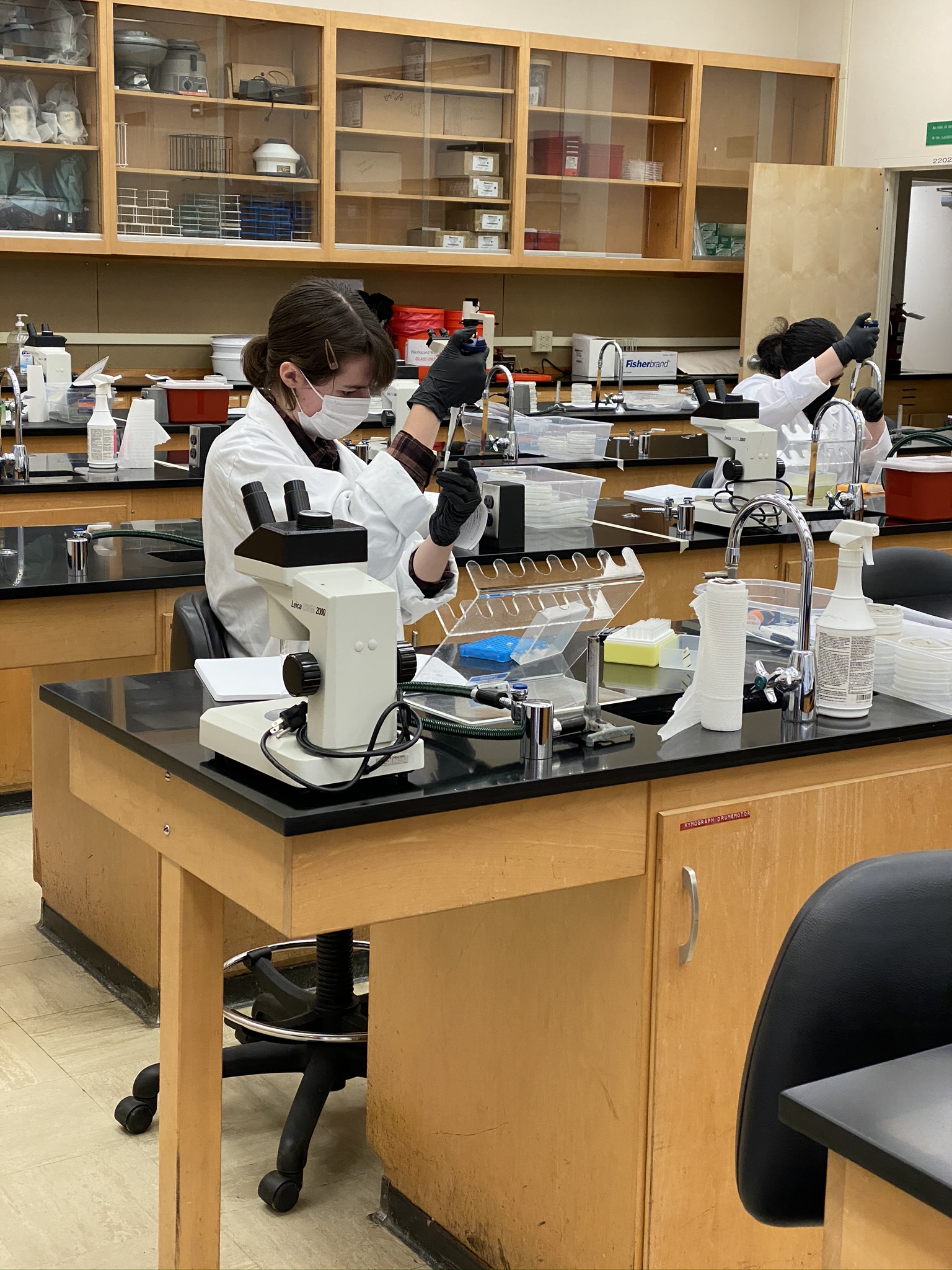Undergraduate Research Opportunities
Welcome to the Home of Undergraduate Research at Cuesta College!
The Council for Undergraduate Research defines Undergraduate Research as, “An inquiry or investigation conducted by an undergraduate student that makes an original intellectual or creative contribution to the discipline.”
This material is based upon work supported by the National Science Foundation under
Grant No. 1821351
Cuesta College Student Feedback On Undergraduate Research
We asked - and Cuesta College students answered!
In Spring 2020 & again in Fall 2021, we conducted student focus groups and student surveys and learned what Cuesta College students' needs are regarding undergraduate research opportunities from over 638 students. CLICK HERE FOR A PDF OF STUDENT FINDINGS.
New Undergraduate Research and Seminar Course (2022)
MATH 290 Introduction to Research
Are you interested in an opportunity to get involved with Mathematics or Statistics
research?
Join us for the 1-unit Math 290: Introduction to Research course (insert meeting information)!
In this fun, low stress course, you will work with a team of other students led by
your instructor in actual
open mathematical or statistical programs. These problems might come from a variety
of sources,
including prestigious journals by the Mathematical Association of America (MAA). Although
collaboration
and problem solving are the emphasis of the class, you will also get a chance to learn
LaTeX, the standard
typesetting program for research journals worldwide. If the team is successful, you
will have a chance to
publish your results or see your name published in a prestigious international journal
such as The College
MathematicsJournal by the MAA (see below publication from Cuesta College Math Faculty).
Click here for the Math 290 promotional flyer (Click here for the PDF File).
Questions? Please contact Math Instructor Guillermo Alvarez Pardo at guillermo_alvarezpar@cuesta.edu
STEM Seminar - Anthropology/Biology/Math/Physical Sciences/Engineering 295
Are you interested in a degree and career in STEM (Science, Technology, Engineering or Mathematics) but are unsure which direction to go? Are you interested in research opportunities in the STEM field but are unsure where to start?
Join us for a 2 unit multi-disciplinary STEM Seminar Course (meeting once a week - Tuesday evenings from 5:00 - 7:00 p.m.) with live guest speakers!
The STEM Seminar will include opportunities to:
- Learn from expert guest speakers in all STEM fields
- Explore academic and career opportunities in STEM
- Increase access to information about local and external research projects and internships
- Develop personal and professional skills to be successful in STEM
- Build and refine your cover letter, resume/CV, and interview skills
- Meet and interact with professors and peers that are interested in STEM
- Be a part of the STEM culture and learn best practices in the field
- Become part of a STEM Community at Cuesta College
Click here for the STEM Seminar 295 promotional flyer
Questions? Please contact Laurie McConnico (laurie_mcconnico@cuesta.edu)
Courses with Undergraduate Research Opportunities
| Department | Course | Course Name | Course Description | Course Outline |
|---|---|---|---|---|
| Anthropology | ANTH 201 | Physical Anthropology | Presents and introduction to the science of physical anthropology. Topics include: the fields of anthropology, the scientific method, evolutionary theory, genetics and inheritance, human, variation, biology and behavior of living primates, the fossil evidence of human evolution, and biocultural adaptation. Examines how humans relate to other living organisms and how the tools of science are used to reconstruct the past history of our species. | Click here for course outline |
| Anthropology | ANTH 201L | Physical Anthropology Lab | Utilizes the hands-on laboratory approach in studying primatology, osteology, genetics, human variation, and forensic anthropology. | Click here for course outline |
| Anthropology | ANTH 202 | Archaeology | This course is an introduction to the study of concepts, theories, and methods of anthropological archaeology, as well as a review of significant data and models that contribute to knowledge of the human past. The course includes a discussion of the history and interdisciplinary nature of archaeological research; dating techniques and methods of survey, excavation, and analysis; cultural resource management; and selected cultural sequences. | Click here for course outline |
| Anthropology | ANTH 247 | Independent Studies- Anthropology | Allows independent study for students who wish to extend their knowledge of a particular area of Anthropology through research and study. Utilizes an approved independent project. Includes one-on-one work with instructor. | Click here for course outline |
| Biology | BIO 201A & 201B | Biology |
Presents the principles of life and life processes with an emphasis on cellular structure, cell division, cellular chemistry, cellular communication, protein synthesis, genetics, and biotechnology. Students in this course participate in lab exercises and independent projects to gain hands on experience in the application of the scientific method. |
Click here for course outlines: |
| Biology | BIO 210M | Environmental & Applied Microbiology |
Presents an examination of microorganisms in the environment including: occurrence, abundance, and distribution; processes of microbial interaction with the environment; importance to human and animal health and practices of applied environmental microbiology. This course includes both field and laboratory work. Students taking this short course in summer session are involved in an active research program examining the occurrence and impacts of a slime mold on eelgrass plants in the Morro Bay Estuary. Students who participate in this summer research experience may qualify for additional research positions during the regular academic year. |
Click here for course outline |
| Biology | BIO 222/222L | Marine Biology and Marine Biology Lab |
Presents and integrates aspects of marine processes, organisms, and ecology. Provides
a general overview of marine biology, research, and human impacts on the marine environment.
|
Click here for course outlines: |
| Biology | BIO 242 | Biology Research Assistant |
Applies principles and methods of biological research. Students must be pre-approved to participate in the course. Well qualified students may present their research findings at conferences and perhaps gain a publication in a peer reviewed journal. |
Click here for course outline |
| Biology | BIO 247 | Independent Study: Biology | Provides an opportunity for an in-depth study or a practicum experience by an individual student in a selected topic of biology under the direction of an instructor. Students in this course have the opportunity to design their own projects and research experiences in collaboration with Biology Faculty. Students must be pre-approved to participate in the course. Well qualified students may present their research findings at conferences and perhaps gain a publication in a peer reviewed journal. | Click here for course outline |
| Engineering | ENGR 248 | Introduction to Engineering | Explores the branches of engineering, the functions of an engineer, and the industries in which engineers work. A significant amount of time will be devoted to engineering design in which each team will be given a design challenge to solve. Like in the real world, students will work in teams. | Click here for course outline |
| Geographic Information Systems (GIS) | GEOL 230 | Introduction to Geographic Information Systems | Introduces the concepts, techniques, and tools of a Geographic Information System (GIS). Students complete course research projects using spatial data collection, management, analysis, and display techniques. | Click here for course outline |
| Geographic Information Systems (GIS) | GEOL 231 | Advanced Geographic Information Systems | Introduces students to problem-solving and decision making using spatial analysis techniques, applicable to a range of disciplines. Students complete course research projects using spatial data collection, management, analysis, and display techniques. | Click here for course outline |
| Geographic Information Systems (GIS) | GEOL 232 | Web Applications in Geographic Information Systems | Introduces the design and development, publishing, and maintenance of basic geospatial web services and applications. | Click here for course outline |
| Geographic Information Systems (GIS) | GEOL 233 | Data Acquisition Management in Geographic Information Systems | Introduces the fundamental concepts and techniques of geospatial data acquisition and analysis. | Click here for course outline |
| Geographic Information Systems (GIS) | GEOL 234 | Remote Sensing | Introduces remote sensing of the Earth. Students complete course research projects applying skills developed in the class. The skills include acquiring remote sensing data, image classification, interpretation and analysis techniques. The results will be displayed using static maps or web mapping applications. | Click here for course outline |
| Psychology | PSYC 200 | Research Methods for the Behavioral and Social Sciences | Introduces students to research methods used in psychology and other social sciences; strategies for searching and reading research literature; basic statistical reasoning and methods; as well as the collection, analysis, interpretation, and reporting of research data. | Click here for course outline |
Fall 2020 Faculty Innovator Lecture Series
| Date and Time | Description | Additional Information |
|---|---|---|
| TUESDAY, NOVEMBER 10, 2020 5:00 to 6:30pm |
Working Side by Side with Students to Provide Undergraduate Research Opportunities for Cuesta College Students |
Click on this PDF LInk for the promotional flyer Click on this PDF Link for an overview of the presentation |
Are you a faculty member interested in providing undergraduate research opportunities, or already do and want to showcase your course offerings or opportunities? Connect with our Faculty Innovators by e-mailing NSF IUSE Project Director and Biology Faculty, Laurie McConnico at laurie_mcconnico@cuesta.edu
Student Research Spotlight
| Project/Research | Documents for Reference |
|---|---|
|
Labyrinthula spp. Association with Eelgrass (Zosteramarina) Population in Morro Bay Estuary, Morro Bay, California Presented at the Western Society of Naturalists conference in Ensenada, Mexico (Nov. 2019) Stemming from Biology Course: BIO 210M Environmental and Applied Microbiology |
Click here for a PDF of the student research |
|
Learn the science of skeletal preparation and articulation. Start with dissection of fresh vertebrate animals and then proceed to learning how to clean and degrease the bones, keeping them organized for articulation. Techniques involve scalpel work, boiling, soaking in various solutions and assembling skeletons using wire and hot glue. Finished specimens will be displayed at Cuesta College. Stemming from Biology Course: Bio 240’s Independent Studies - Skeletal Preparation |
Photograph of students presenting their research from BIO 210M:
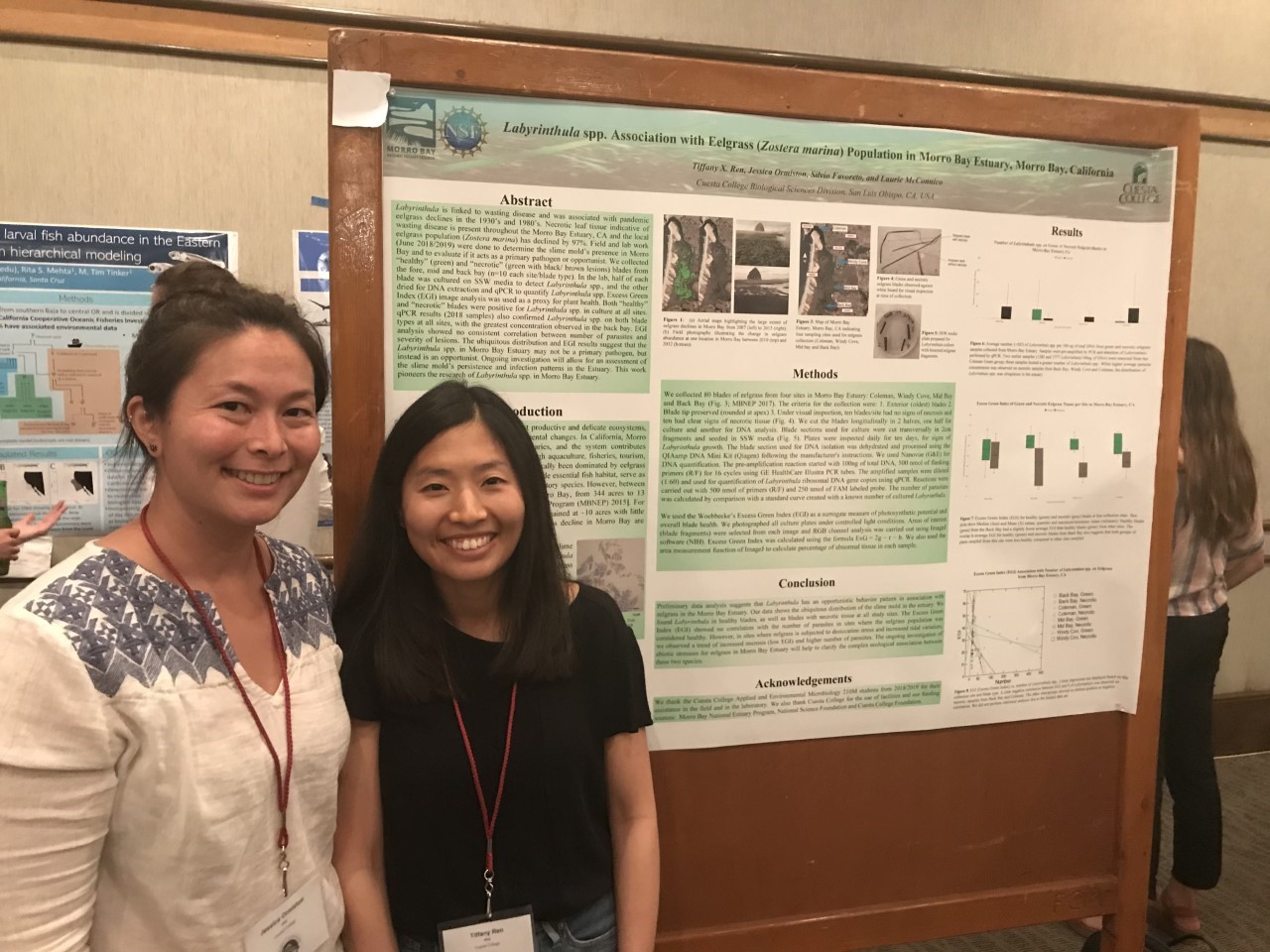
Photographs of student research opportunities in BIO 210M:
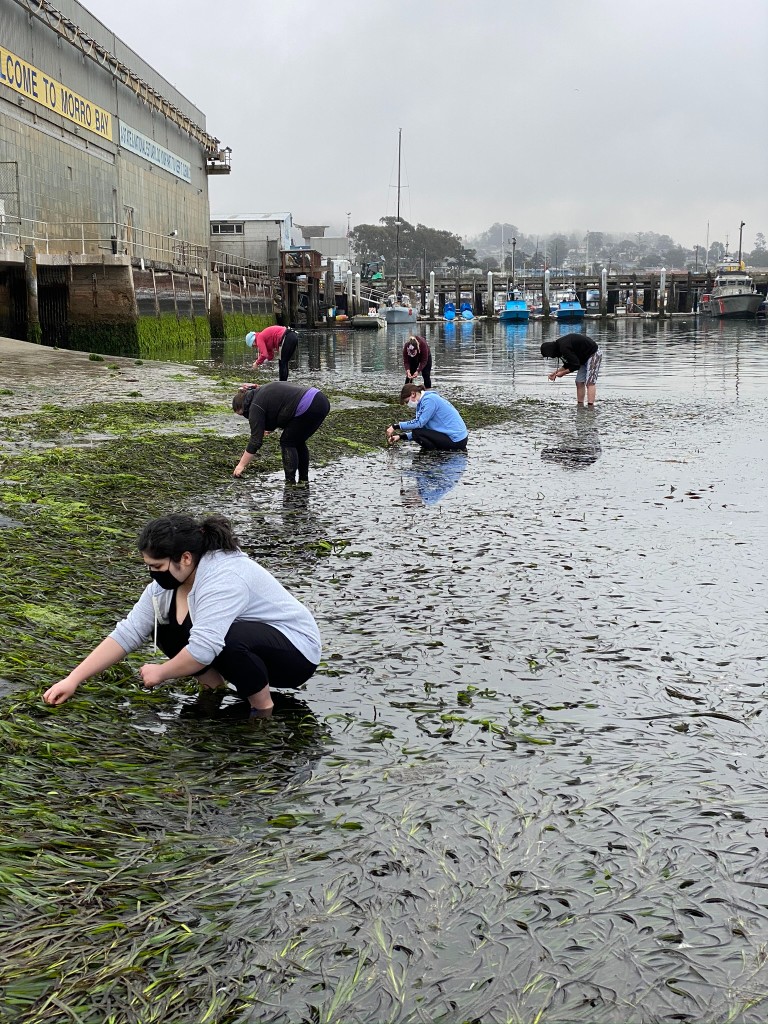
Photographs of student research opportunities in BIO 222/222L:
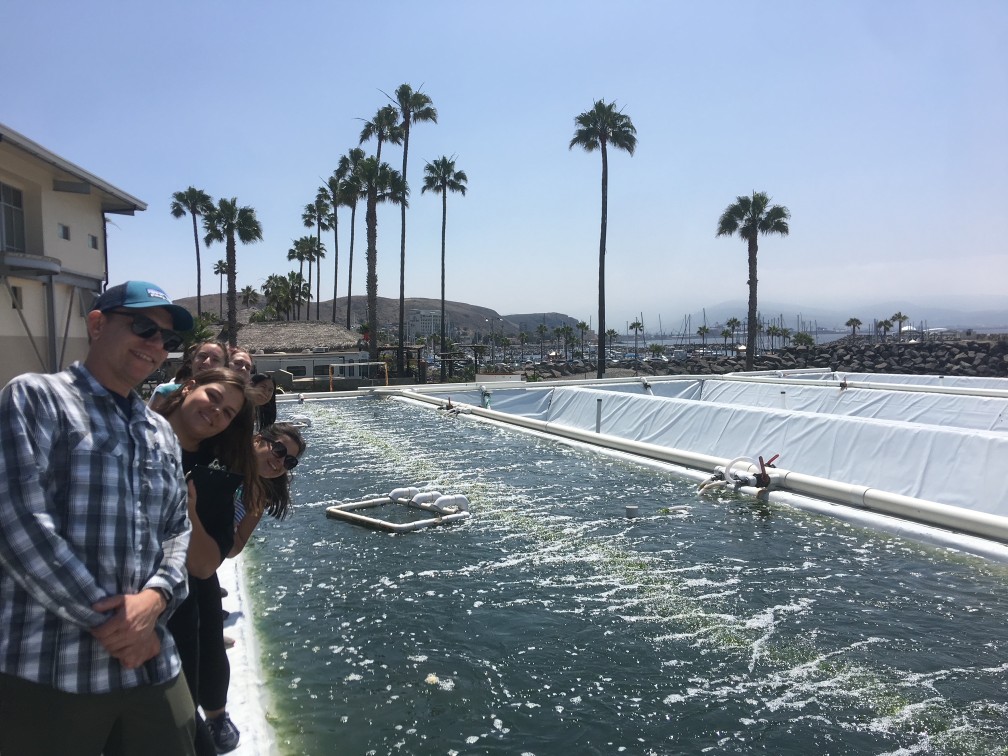
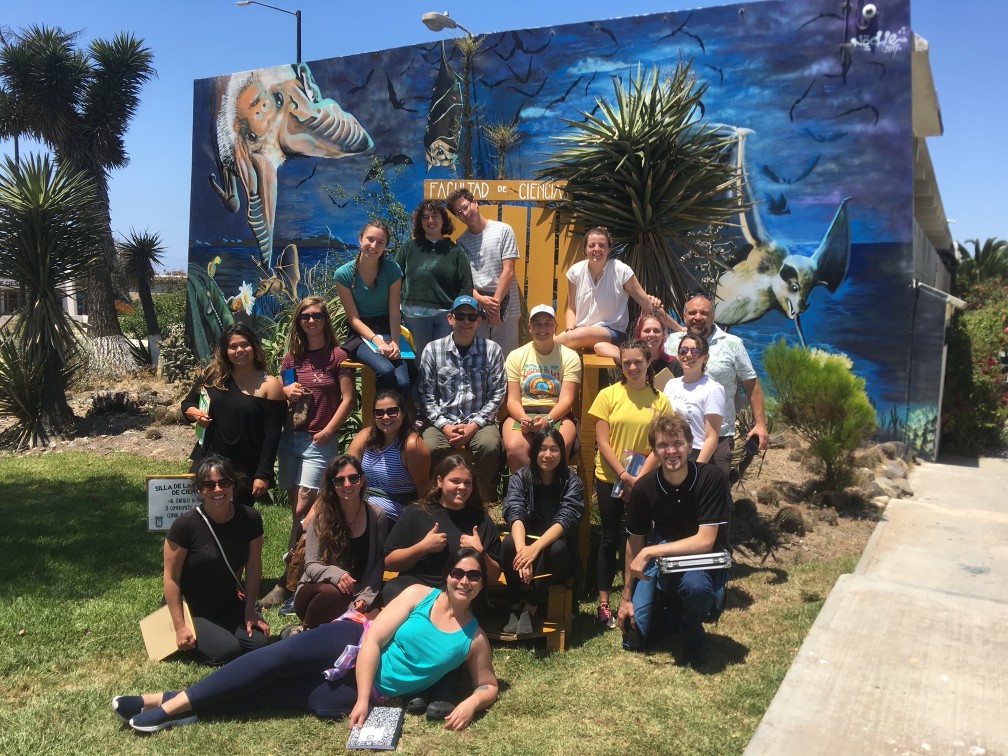
Photographs of student research opportunities in BIO 240:
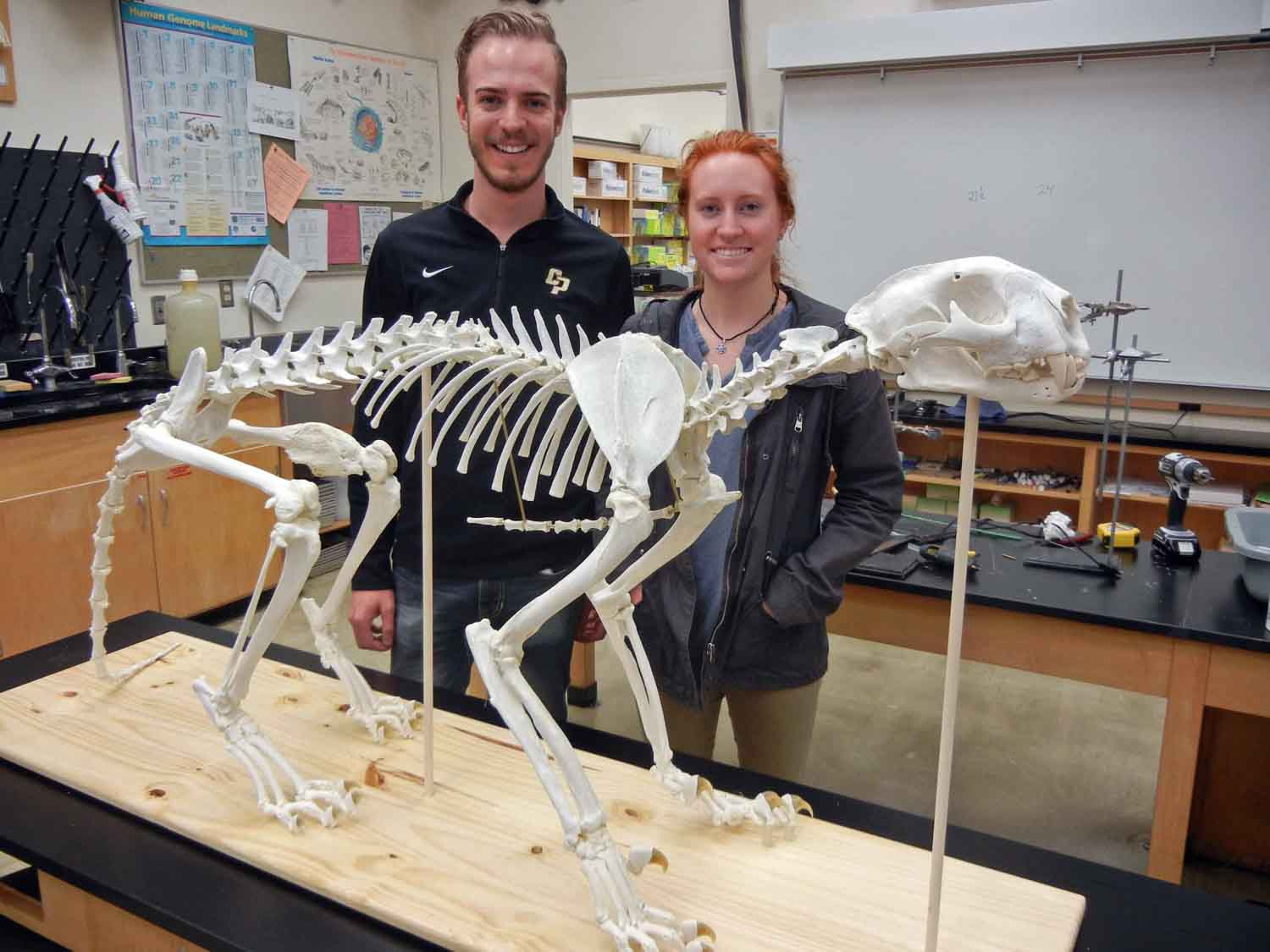
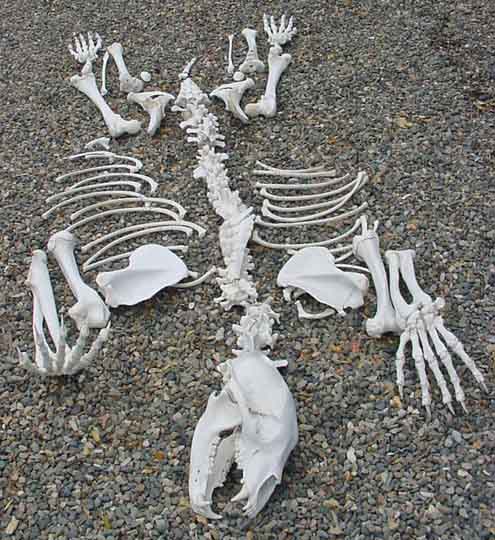
Links to Undergraduate Research Opportunities Outside of Cuesta College
| Description | Link |
|---|---|
| Association of American Medical Colleges List of Summer Undergraduate Research Experiences (UREs) in the Medical Field | https://www.aamc.org/professional-development/affinity-groups/great/summer-undergrad-research-programs |
| Pathways to Science - a Search Engine to locate funded Undergraduate Research Experiences (UREs) in STEM at many institutions | https://www.pathwaystoscience.org/Programs.aspx |
| Office of Science/US Department of Energy has a paid research undergraduate research opportunity for Fall 2021 for their Fall Term Science Undergraduate Laboratory Internships (SULI) Program. Applications due 5pm (EST) on May 27, 2021. | https://science.osti.gov/wdts/suli/ |
| Cal Poly SLO Undergraduate Research Department: See opportunities - including those for community college students! | https://studentresearch.calpoly.edu/opportunities |
| More to come | More to come |
Prior Cuesta College Student Research Experiences
Study: Chai Tea Promotes Ampicillian Susceptibility in MRSA
Poster Presentation (Click here for PDF)
Academic Paper (Click here for PDF)
... More to come!
This material is based upon work supported by the National Science Foundation under Grant No. 1821351
